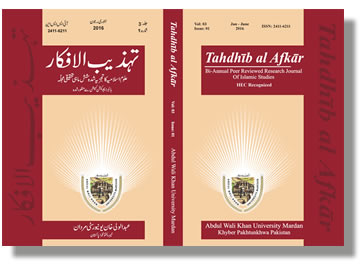Critical Analysis of Pakistani law of Electronic Evidence from the Perspective of Sharīʻah and English Law-Recommendations for Pakistan
Abstract
This article claims that law of electronic evidence in Pakistan lags behind from two perspectives. First, it is quite primitive from the perspective of modern development in legal rules in other states. Secondly, since the primary source of law of evidence in Pakistan is Qanun-e-Shahadat Order 1984, which is based on Evidence Act 1872 (A British Empire’s legislation in Indo Pak subcontinent). So, law of evidence in Pakistan does not carry basic principles of Sharīʻah regarding testimony and evidence. This article is aimed at exploring the shortcomings of law of Pakistan from both perspectives. Areas that are mostly relevant in this regard shall be discussed, like, oral testimony, authentication of evidence, expert testimony, circumstantial evidence etc. in this article.





